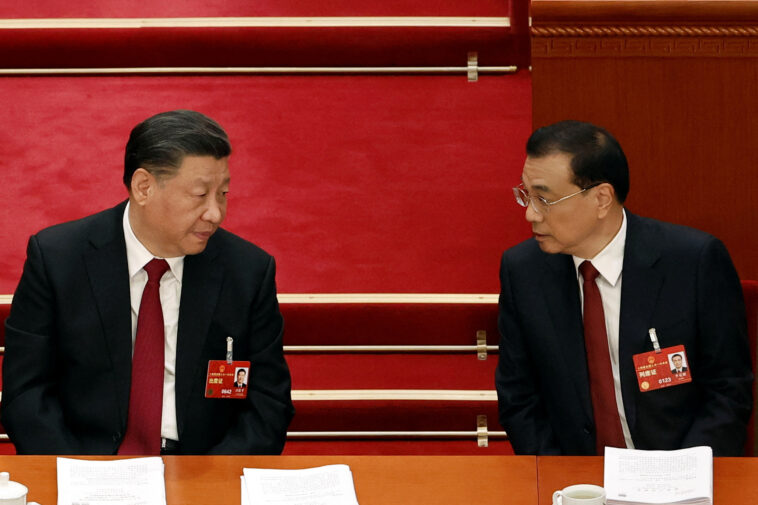China Sets Economic Growth Targets For 2023
Beijing: China announced one of its lowest economic growth targets in years on Sunday, kicking off meetings of its rubber-stamp parliament that will grant Xi Jinping a third term as president and increase defence expenditure.
In an introductory report, the Chinese government stated that it would target a development rate of “around 5%” for the upcoming year, one of its lowest rates in decades.
As a result of the effects of rigorous Covid containment policies and a real estate crisis, China’s economy only grew by three percent last year, missing its stated target of approximately 5.5 percent by a wide margin.
“Under the strong leadership of the Party Central Committee, we responded to Covid-19 and pursued economic and social development in an effective and well-coordinated manner,” stated the government report presented by outgoing Premier Li Keqiang at the opening session of the National People’s Congress on Sunday.
“Overcoming significant obstacles and challenges, we were able to maintain overall economic stability,” the report added.
Analysts predict there will be few surprises at the meticulously orchestrated National People’s Congress, where thousands of Chinese politicians will vote on laws and personnel changes pre-approved by the governing Communist Party (CCP).
On the agenda of the National People’s Congress (NPC) will be the unprecedented reappointment of Xi Jinping as president on Friday, after he secured another five years as head of the party and the military — the two most significant leadership positions in Chinese politics — at a congress in October.
Since then, the 69-year-old Xi’s leadership has been confronted with unforeseen obstacles and scrutiny, including mass protests over his zero-Covid policy and its subsequent abandonment, which resulted in a fatal coronavirus outbreak.
However, these issues will almost certainly be avoided at this week’s Beijing conclave, which will also see the introduction of Xi’s confidant and former Shanghai party chief as the new premier.
No challengers
Alfred Muluan Wu, associate professor at the Lee Kuan Yew School of Public Policy at the National University of Singapore, told AFP that Xi maintains a “pretty strong” position at the head of the party, making him virtually unchallengeable.
Director of the SOAS China Institute at the University of London, Steve Tsang, stated that Xi now has the opportunity to demonstrate his response to the unrest of the previous year.
“When the protests included demands for him and the CCP to resign, he acted decisively. He crushed them and eliminated the root cause “He said to AFP.
“He can present himself as a leader who initiates action rather than one who is forced to react”
Also on the agenda for legislators will be China’s weakening economy and an increase in the world’s second-largest defence budget.
Also read: Vivek Ramaswamy proposed prohibiting American companies from doing business with China
According to state media reports, delegates to the NPC — and to the concurrent “political consultative conference” (CPPCC) which began on Saturday — will also discuss a variety of issues ranging from the economic recovery to enhanced sex education in schools.
The meetings provide a forum for attendees to present personal projects, but they have little influence over China’s administration.




